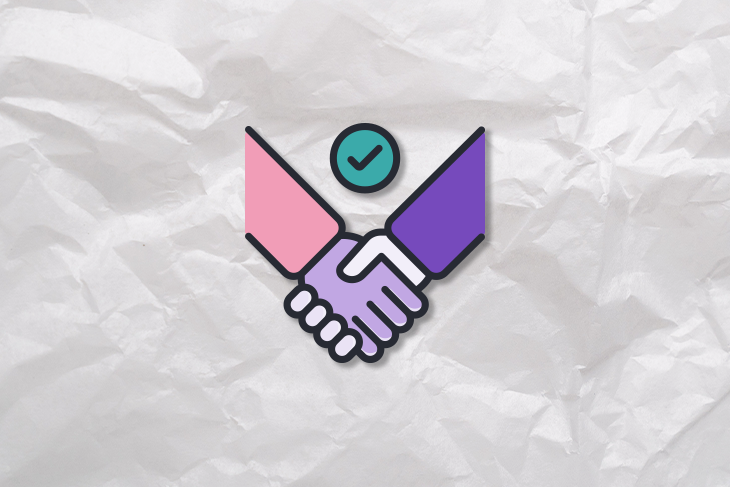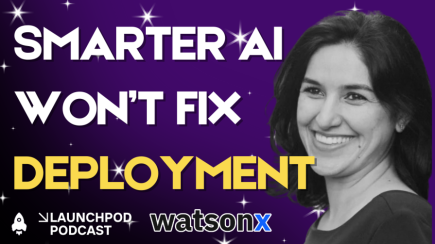Product management interviews are tough for two reasons.

First of all, there are way more people trying to break into product management than the actual demand because of the promise of a high salary without needing a technical background.
Second, the scope of the role is exceptionally broad. It’s hard to predict what types of questions you’ll get and how the actual interview process will be structured.
This not only makes the interview itself more challenging, but heightens stress and anxiety.
In this article, I’ll share some tips and insights on preparing for a product management interview.
Let’s start with general preparation. The following action plan should help you in your interviews regardless of the company you apply for:
A good first step is to read some product management interview books. I recommend this for three reasons:
The two books I’d recommend are:
You can be sure you’ll be asked at least a few behavioral questions during your interview process. These are the “tell me about a time …” ones, such as tell me about a time:
The biggest challenge with these questions is that there are endless variations. You might be asked about anything depending on what the interviewer is looking for. Trying to prepare for every possibility is like tilting at windmills.
The solution? Prepare a few stories that showcase your experiences and achievements. Take some time and think about the most significant moments in your career. They could be your greatest successes, challenges, or learnings.
Try to come up with 10 diverse stories and practice telling them. You can practice in writing or in front of a mirror. Practice until you can tell a compelling story by heart.
Now, when you get asked a behavioral question during an interview, you’ll easily be able to refer to one of your stories.
There’s no worse feeling in the world than having no answer for “tell me about the time…” during an interview, just to realize after the interview that you had a killer story and experience, but you forgot about it because of the stress of the interview.
At the end of the day, it’s better to approach an interview with a solid memory and details about the most important experiences you’ve had, rather than a vague memory of your whole career path.
Although interview questions vary a lot company to company, there are a few that you’ll hear in 90 percent of your interviews. For these, you should have sharp and well-prepared answers. There’s no excuse for being unprepared for the “tell me about yourself” question.
The most common questions include:
For more details and interview questions, check out our product management interview questions article.
Now it’s time to put it all into practice and do some mock interviews. You can do it either with professional interview trainers or peer-to-peer.
The most significant benefit of mock interviews is the confidence it gives. If you haven’t been interviewing for a while, the first interview and the whole process might be quite stressful. Doing a few mocks can help you reduce the stress and get used to the feeling of interviewing again.
Here are some websites that can help you with your interview preparation:
If you followed the four steps described earlier, you should already:
Now it’s time for some company-specific preparation. Let’s look at a few tips on maximizing your chances of getting an offer from the company of your choice.
The most important thing in preparing for a product management interview is to actually get to know the product itself. Showing up for an interview without understanding the product you want to manage is a big red flag.
Apart from understanding the basics and general workings of the product, focus on three areas:
You should come to an interview with a list of potential recommendations and product improvements in mind.
It will be purely theoretical and gut-feeling-based, but that’s okay. No one will expect you to know the inside context and product metrics to give a fully informed recommendation.
Having some general vision of product improvements will show that you put effort into your preparation and that the company you apply for isn’t just one “of the hundred you randomly applied for”. It’s also a good opportunity to showcase your expertise.
The “what are our competitors” questions appear relatively frequently during interviews. Similar to the recommendations/improvements questions, it will showcase that you truly value the company you apply for.
It will also give you an additional context that might help you answer some other interview questions, or give better product recommendations.
Showing that you truly understand the market landscape the product operates in is a big plus.
This is a heavy one, but try to figure out a long-term strategy for the product. Again, it’ll be fully gut-feeling-based, and that’s okay.
It’ll prove that you can also think long-term and will demonstrate your way of thinking. Having some vision of how you would drive the product will also help you kickstart interesting conversations and ask sharp questions during the interview.
Try to network with people that already work in the company. Just reach out to them on LinkedIn. You’ll be surprised how helpful people tend to be.
It will help you understand the role better and what the company seeks. Not only will it validate if the role is truly what you are seeking, but it will also help you with your preparation.
And if you feel the conversation went well, ask for a referral. Many companies offer referral bonuses, so employees are often willing to refer people they barely know. Although you shouldn’t expect them to give you a stellar recommendation after one chat, the mere fact that you were referred will help you get past gatekeepers.
Worst case scenario, you’ll hear “no.”
Interviewers will judge you by the quality of your questions.
Having no questions is a red flag. It makes interviewers doubt if you are genuinely interested in the role. Plus, it’s a wasted opportunity. The “do you have any questions for us?” part is an excellent opportunity to showcase your preparation and expertise by asking smart questions, such as, “Why did you decide to pursue X rather than Y?”
Prepare some good company and product-specific questions that might lead to interesting conversations. Don’t resort to the basic, “What do you like the most about working here?”.
Questions you ask should leave the, “Wow, I’m surprised he/she thought about that,” impression.
The broadness of product management, combined with high interest for the role, makes product management interviews very challenging.
However, the proper preparation can maximize your chances of acing your interviews.
The first step should be universal preparation. After all, half of the interviewing process looks similar across companies. You can prepare by:
Once you’ve done that, or if you already have an interview scheduled, also consider some company-specific prep, such as:
At the end of the day, preparation is half of the success.
Featured image source: IconScout

LogRocket identifies friction points in the user experience so you can make informed decisions about product and design changes that must happen to hit your goals.
With LogRocket, you can understand the scope of the issues affecting your product and prioritize the changes that need to be made. LogRocket simplifies workflows by allowing Engineering, Product, UX, and Design teams to work from the same data as you, eliminating any confusion about what needs to be done.
Get your teams on the same page — try LogRocket today.

Rahul Chaudhari covers Amazon’s “customer backwards” approach and how he used it to unlock $500M of value via a homepage redesign.

A practical guide for PMs on using session replay safely. Learn what data to capture, how to mask PII, and balance UX insight with trust.

Maryam Ashoori, VP of Product and Engineering at IBM’s Watsonx platform, talks about the messy reality of enterprise AI deployment.

A product manager’s guide to deciding when automation is enough, when AI adds value, and how to make the tradeoffs intentionally.